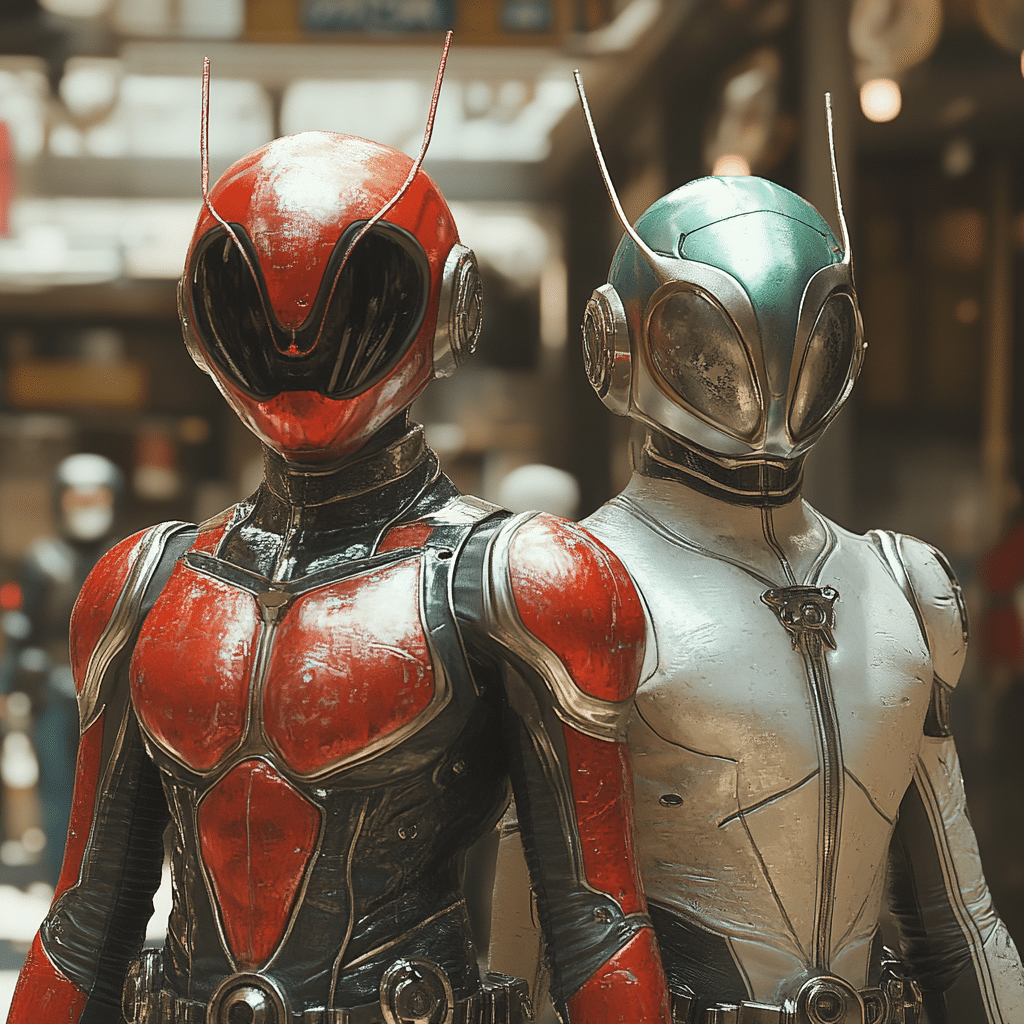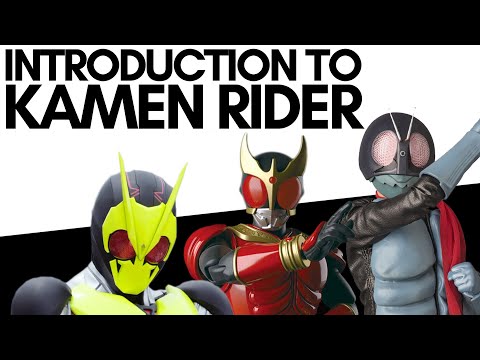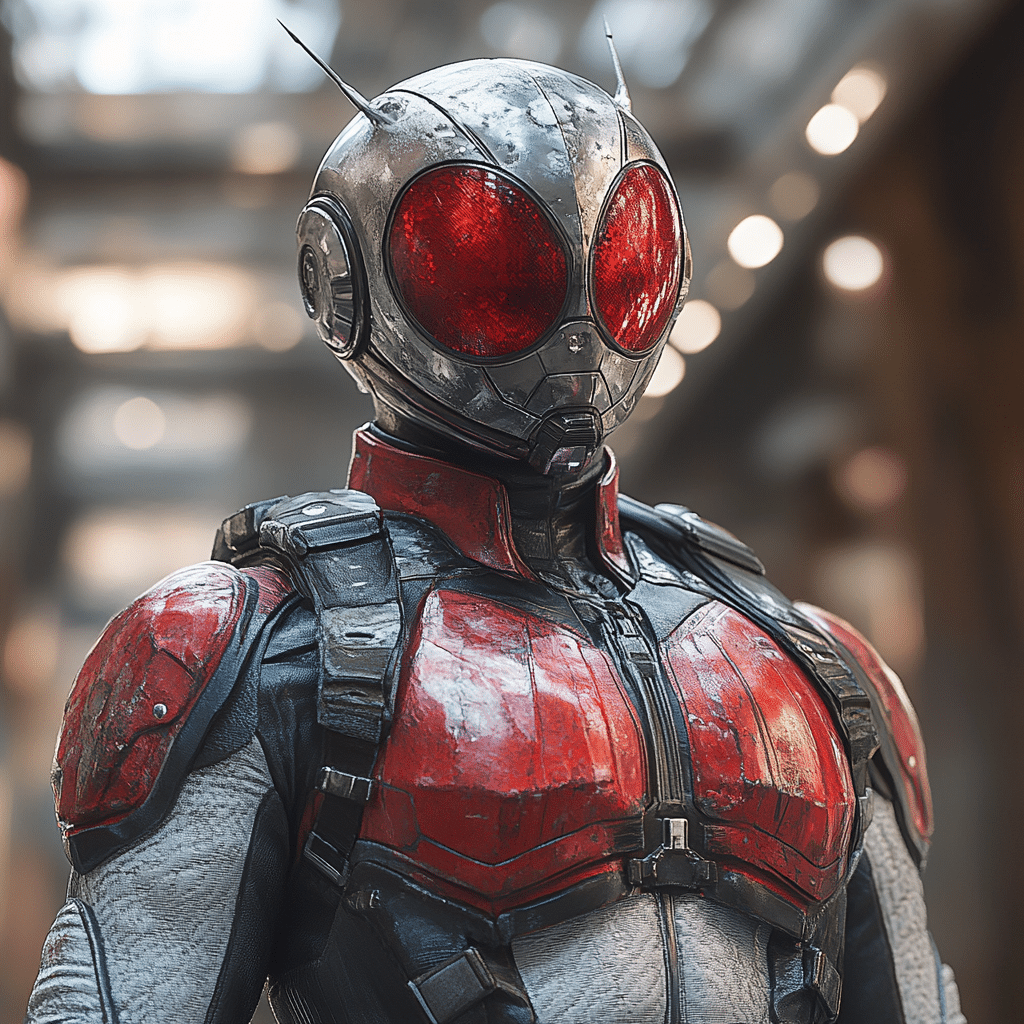
Kamen Rider Series Thrilling Legacy Of Heroes And Villains
The Kamen Rider series has enthralled audiences since its inception in 1971, creating a cultural landmark not only in Japan but across the globe. With an impressive number of seasons and an ever-growing roster of characters, each iteration brings forth new stories that encapsulate the essence of heroism and villainy. Fans worldwide eagerly anticipate this blend of imagination and morality, as seen throughout history—from Kamen Rider Ichigo’s foundational narratives to the current exploration of technology in Kamen Rider Zero-One. Time and again, the Kamen Rider series connects with audiences through complex characters, evoking emotional responses and reflecting society’s own struggles.
Top 7 Iconic Kamen Riders That Shaped the Series
The characters from the Kamen Rider series do more than just fight evil; they often portray nuanced portrayals of right and wrong, mirroring many challenges faced today. Below are seven iconic Kamen Riders who left an indelible mark on the franchise:
As the original hero, Kamen Rider Ichigo set the stage for future riders. His transformation into a powerful being symbolizes the constant battle between light and darkness. This character showcases the theme of personal sacrifice entwined with heroism, laying the groundwork for emotional storytelling.
V3 injected a darker tone into the narrative with its themes of revenge and justice. His backstory, woven with personal loss at the hands of an evil organization, enriches his motivations and lets viewers dive deeply into his psychological state. This series also introduced sidekicks, emphasizing loyalty and teamwork—a trend seen in countless genres.
Kamen Rider Black resonates with fans due to its exploration of familial bonds and internal conflicts. The conflict between Black and Shadow Moon reveals layers of emotional complexity, presenting a juxtaposition of familial loyalty and rivalry. Understanding his origins and destiny invites a sense of relatability among viewers, making Black a standout character.
Reviving interest in the franchise, Kuuga presented a modern approach to storytelling. This series delves into the psychological aspects of heroism while facing grotesque monsters known as Grongi. Kuuga’s journey exemplifies the hero’s evolution and mirrors societal fears of monstrosity—an allegory on inner demons lurking within humanity.
Den-O flips the script by embracing time travel and identity fragmentation. The protagonist’s varied forms allow for exploration of different personas, essentially accentuating the question of self. Den-O challenges traditional storytelling by presenting moral dilemmas, rendering villains multidimensional rather than one-dimensional adversaries.
The dual identity of Kamen Rider W empowers the narrative with themes of teamwork, consequence, and responsibility. Shotaro and Philip’s partnership showcases how interconnectedness can overcome evil, while also posing profound moral questions. In this series, the lines between heroism and villainy blur, leading audiences to reflect on social justice issues.
The latest installment dives into contemporary issues like automation and corporate exploitation. Aruto’s journey as a hopeful hero contrasts starkly with a villain driven by greed. This narrative explores the fragility of identity amid advancing technology and urges viewers to examine the implications of their relationship with innovation.
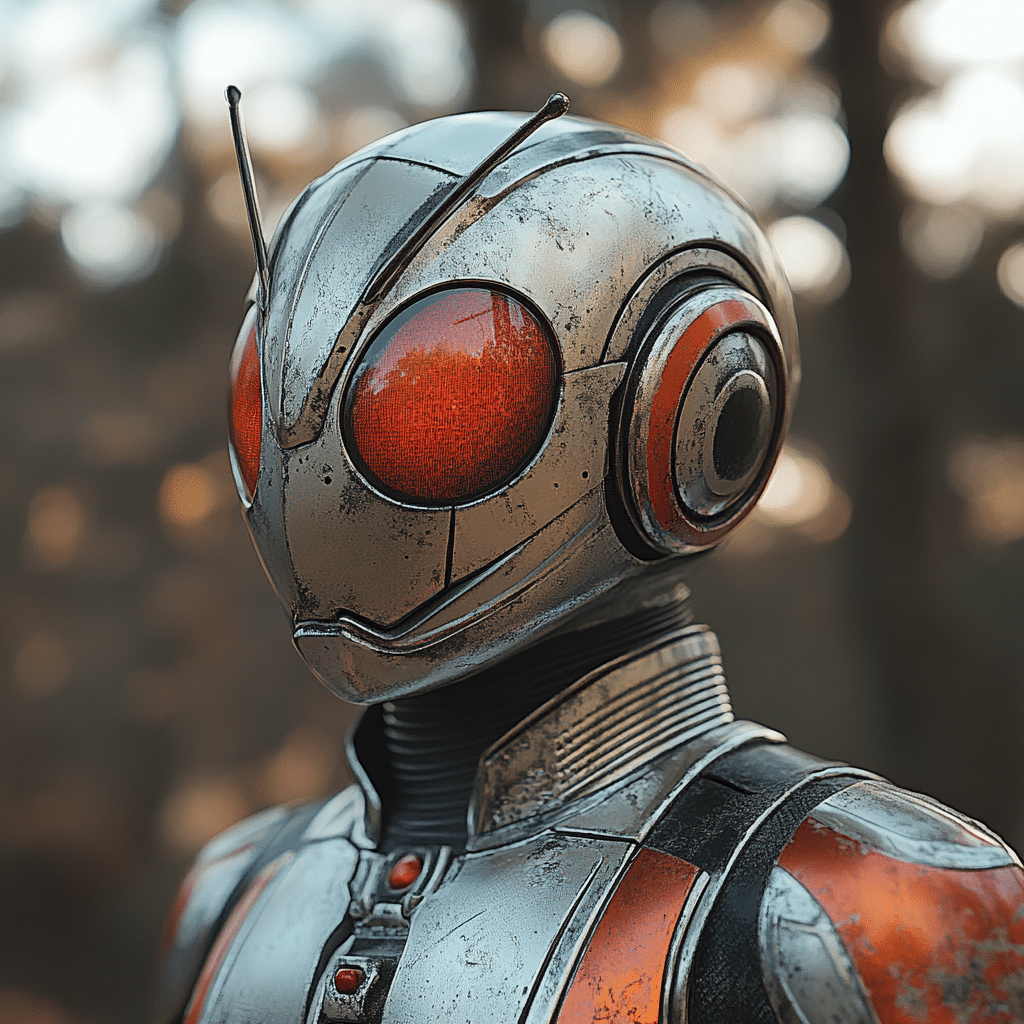
The Evolution of Heroes and Villains in the Kamen Rider Series
The Kamen Rider series serves as a mirror for societal evolution, seamlessly blending action with philosophical inquiry. Each rider becomes an embodiment of typical heroism—while also posing questions about morality, ethics, and identity. The villains within these stories reflect relatable motivations, often resonating with the audience. Viewers can identify with their struggles, creating layers of complexity that go beyond mere conflict.
This intricate characterization fosters a richer narrative, allowing viewers to empathize with those who may not fall neatly into the categories of good or bad. It conveys the message that heroism is sometimes a matter of perspective, encapsulating societal grey areas where individuals grapple with moral choices every day.
Cultural Impact and Fan Engagement
The fandom surrounding the Kamen Rider series fuels its longevity and relevance. With events like the annual Kamen Rider Expo and a merchandise boom, fans can immerse themselves in the stories and characters they adore. This sense of community holds immense power, as fans create fan art, cosplay, and engage in collaborative storytelling. For instance, the wide array of creative expressions measuring the fans’ emotional connection showcases how deeply rooted these characters are in the cultural fabric.
Each addition to this expansive universe resonates with themes relevant to its audience—much like the collaborations seen in contemporary culture with figures like Rihanna And Asap rocky, who continually redefine art through their work. The Kamen Rider’s compelling tales speak to ongoing struggles, whether through personal sacrifice, familial loyalty, or the entanglements of identity and technology.
Reflections on the Future of the Kamen Rider Series
Looking forward to the franchise’s 2025 anniversary, the future of the Kamen Rider series holds promising potential. With the industry constantly changing, new iterations are likely to emerge that continue exploring these foundational values and provide fresh perspectives. Concepts that resonate today will be adapted for tomorrow’s audience, ensuring that the Kamen Rider series remains a vital source of inspiration.
By reflecting social anxieties and exploring themes of heroism and identity, the series invites its fans to engage in critical thought while enjoying grand narratives. As ridership culture continues to evolve, Kamen Rider reminds us that the saga of light and darkness is timeless. This thrilling legacy captivates and inspires, solidifying itself as a cultural icon reflective of both past and present adventures.
The transformation of heroes and villains in the Kamen Rider series serves as a testament to the timeless struggle between good and evil—a narrative that challenges and resonates across generations, perpetually adding depth to an already rich storytelling tradition.
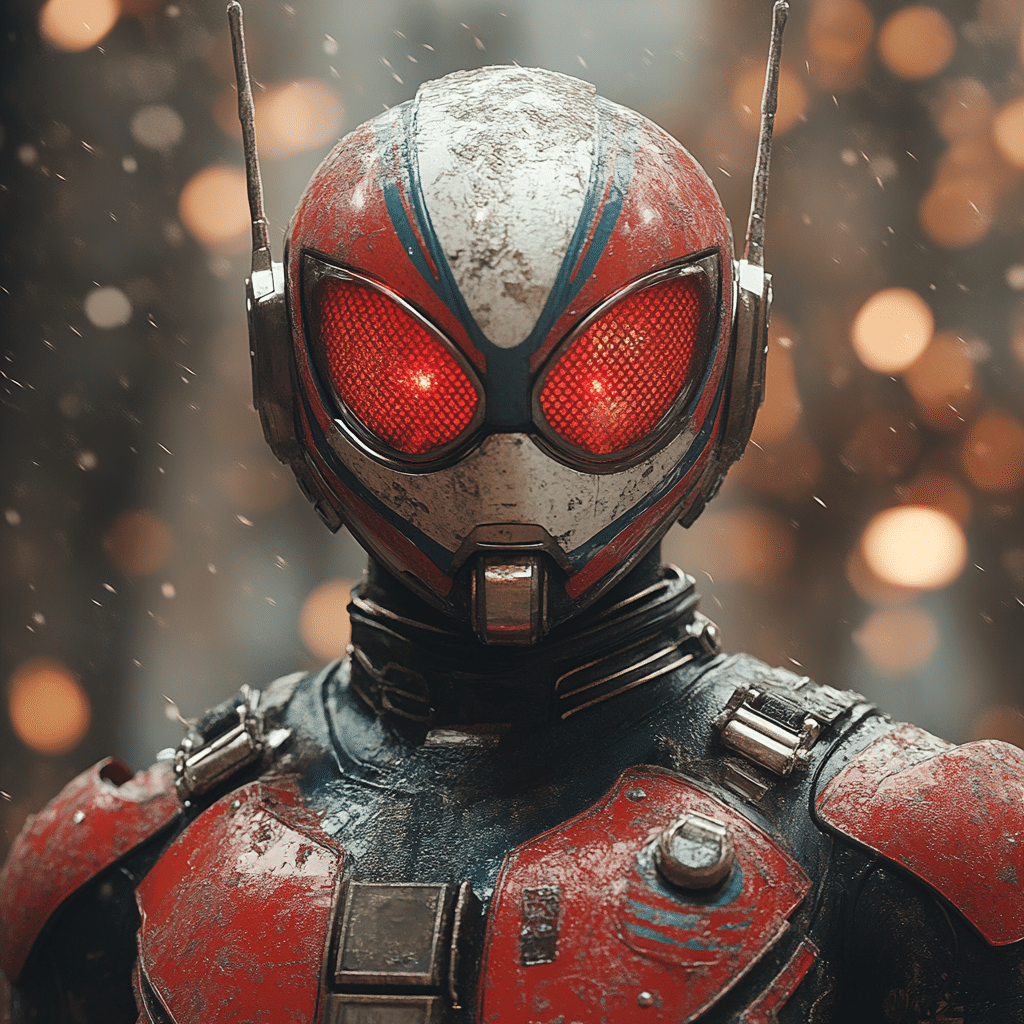
Kamen Rider Series: A Thrilling Legacy of Heroes and Villains
Did You Know?
The Kamen Rider series has a history that spans over four decades! First debuting in 1971, it’s not just a pop culture phenomenon in Japan, but also a staple source of inspiration for countless creators worldwide. Fans have often joked that the Kamen Riders might compete against omega Sports stars for fan loyalty. With their colorful costumes and powerful transformations, these heroes have captivated audiences of all ages. This show has spawned numerous spin-offs, and is beloved by fans who appreciate both the nostalgia and the cutting-edge storylines that often include social commentaries.
Behind the Scenes and Rumors
While the Kamen Rider series has its vast universe of heroes and villains, the behind-the-scenes stories can get as entertaining as the episodes themselves. For instance, some recent twitter Leaks suggest there may be surprise appearances from classic Riders in upcoming installments, which has fans buzzing with excitement. Moreover, the influence of high-profile figures like Sam Lutfi—a name often associated with controversial moments in entertainment—has been noted in fan circles discussing the show’s impact on pop culture. Fans are always hungry for the latest scoop, and this series keeps giving them reasons to stay glued to the screen.
Cultural Crossovers
The impact of the Kamen Rider series isn’t limited to Japan. Across the globe, the Rider’s designs and narratives have led to fascinating cultural crossovers. For example, heavy influences are seen in characters like Chanel Camryn from web series that merge Asian aesthetics with Western comic styles, showing the elasticity of these stories. Fans even incorporate elements from other genres into their art, including quirky fan-made drawings featuring familiar faces alongside Deadpool wallpaper. It’s a clear signal that this legacy has sparked an endless web of creativity.
Interestingly, the characters often tackle prevalent social issues, crafting plots that can be as relevant as modern-day dramas like El Paisano. Not to mention, with such an expansive universe, the Kamen Riders tackle themes of heroism, morality, and sacrifice, echoing the strengths of iconic figures including even legendary figures like Dolly Parton on her ventures with the Dallas Cowboys. The synergy between these stories and real-world heroes enriches the viewing experience, ensuring that the Kamen Rider series stays fresh and relatable for both new fans and those who’ve been along for the ride since the early days.
In essence, the legacy runs deep, reflecting not just in the on-screen battles of good versus evil but also in the vibrant community that continues to grow through shared passions and creative expressions. The storytelling elements from C3 C4 thinking have helped evolve this narrative into more than just a series—it’s a cultural phenomenon.
